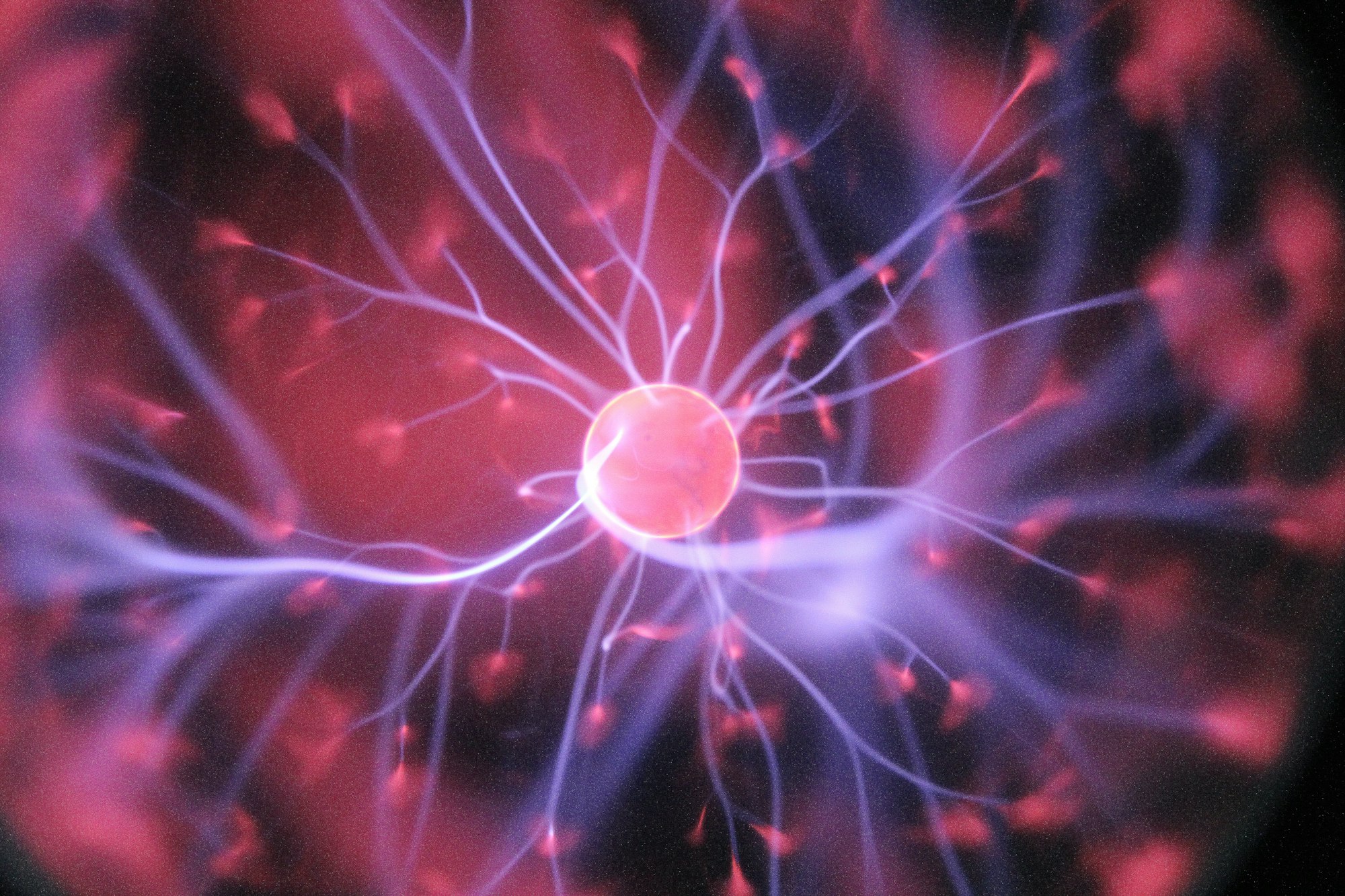The Early Signs and Symptoms of Dementia
Recognize early signs of dementia like memory changes, communication difficulties & shifts in mood/personality. Know your family history & lifestyle choices to reduce risk of developing it. Early diagnosis is key for managing symptoms and getting tailored treatments and support.

Dementia is a complex and often misunderstood condition that affects millions of people worldwide. Recognizing the early symptoms of dementia is crucial for managing the condition and improving the quality of life for those living with it. In this blog post, we will delve into the various types of dementia, the early symptoms, risk factors, and the importance of early diagnosis. By understanding these aspects and being aware of the symptoms of dementia, we can better support our loved ones and even take preventative measures for ourselves.
Short Summary
- Recognize early signs of dementia like memory changes, communication difficulties & shifts in mood/personality.
- Know your family history & lifestyle choices to reduce risk of developing it.
- Early diagnosis is key for managing symptoms and getting tailored treatments and support.
Recognizing Early Symptoms of Dementia

As we age, it’s natural to experience occasional memory lapses or difficulty recalling specific details. However, when these memory problems become more frequent and disruptive to daily life, they may be indicative of a more serious condition like dementia.
Early symptoms of dementia can be subtle and gradual, making it important to recognize changes in memory, communication, and mood. In this section, we will explore these early signs, which can provide valuable insights for those developing Alzheimer’s disease or other forms of dementia.
Subtle Memory Changes
One of the earliest indicators of dementia is subtle changes in short-term memory. This may manifest as forgetting recent events or conversations, often leading to repetitive questioning or storytelling. While it’s normal for older adults to occasionally forget appointments or misplace items, these memory lapses may become more frequent and pronounced in the early stages of dementia.
By recognizing these subtle memory changes, we can take the necessary steps towards early diagnosis and intervention.
Communication Difficulties
Another early sign of dementia is difficulty with communication, including:
- Trouble finding the right words
- Following conversations
- Disorganized speech
- Using unusual words
- Struggling to understand the meaning of simple words
While momentary difficulty in finding the right word is a normal part of aging, persistent communication issues may be indicative of early onset dementia.
Identifying these difficulties early on can help individuals receive the necessary support and treatment to manage their symptoms.
Mood and Personality Shifts
Dementia can also cause dementia like symptoms, such as changes in mood, personality, or behavior, which may be mistaken for typical dementia symptoms. This may include increased apathy, sudden mood swings, or a shift in personality traits, such as a previously shy individual becoming more outgoing.
These mood and personality shifts can be particularly challenging for family members and caregivers, as they may not understand the underlying cause. Recognizing these changes early on can help facilitate appropriate support and care for individuals living with dementia.
Understanding Different Types of Dementia

Dementia is an umbrella term that encompasses a broad range of cognitive disorders, including early onset dementia and mixed dementia. Different types of dementia have varying symptoms and causes, which can make diagnosis and treatment more complex.
In this section, we will discuss the characteristics of the following cognitive conditions:
- Alzheimer’s disease
- Vascular dementia
- Frontotemporal dementia
- Lewy body dementia
This will provide a comprehensive understanding of these conditions.
Alzheimer's Disease
Alzheimer’s disease is the most common form of dementia, affecting millions of people worldwide. It is characterized by memory loss, confusion, and difficulty with daily tasks. As people age, the risk of developing Alzheimer’s disease increases, making it a growing concern for individuals and their families.
Early signs of early onset Alzheimer’s disease can include difficulty remembering recent events or conversations, misplacing items, and increasing confusion and disorientation. As Alzheimer’s disease progresses, these symptoms tend to worsen, making it essential to recognize and address these early signs in order to better manage the condition.
Vascular Dementia
Vascular dementia, the second most common cause of dementia after Alzheimer’s, is caused by reduced blood flow to the brain. This reduction in blood flow can result in:
- Cognitive decline
- Difficulties with judgment
- Difficulties with planning
- Difficulties with problem-solving
Symptoms of vascular dementia can develop suddenly or gradually, depending on the underlying cause, such as a stroke or multiple mini-strokes. Understanding the unique characteristics of vascular dementia is crucial for proper diagnosis, treatment, and management.
Frontotemporal Dementia
Frontotemporal dementia is a type of dementia that affects the frontal and temporal lobes of the brain. Known for causing changes in personality, behavior, and language, frontotemporal dementia is a unique cognitive disorder that typically arises in individuals aged 45-65.
Early symptoms of frontotemporal dementia can include impulsivity, apathy, and difficulty with language. By recognizing these early signs, individuals and their families can seek appropriate support and intervention to manage this challenging condition.
Lewy Body Dementia

Lewy body dementia, a rare brain disorder and the third most common type of dementia, is characterized by abnormal protein deposits in the brain, known as Lewy bodies. These deposits can cause symptoms similar to both Alzheimer’s and Parkinson’s diseases, making diagnosis and treatment more complex. The presence of Lewy bodies affects brain cells, leading to the various symptoms experienced by patients.
Common symptoms of Lewy body dementia include cognitive fluctuations, visual hallucinations, and motor disturbances. Understanding the unique characteristics of Lewy body dementia is essential for providing appropriate care and support to those affected.
Risk Factors for Developing Dementia
While dementia can affect individuals of all ages and backgrounds, certain risk factors can increase the likelihood of developing the condition. These risk factors can be genetic, such as family history, or influenced by lifestyle and environmental factors, such as smoking and physical inactivity.
In this section, we will explore the various risk factors for dementia and discuss ways to mitigate these risks.
Genetic and Family History
While the majority of dementia cases are not inherited, certain rare forms of Alzheimer’s disease can be passed down from generation to generation. A family history of dementia or specific genetic mutations can increase the risk of developing the condition.
Although genetic factors cannot be changed, understanding one’s family history can help individuals take preventative measures and seek early diagnosis and treatment if necessary.
Lifestyle and Environmental Factors
Modifiable risk factors, such as diet, exercise, and mental stimulation, can play a role in reducing the risk of dementia. Adopting a healthy lifestyle, including regular physical activity, a nutritious diet, and avoiding smoking, can help lower the risk of developing dementia.
Additionally, addressing underlying health conditions, such as hypertension and high cholesterol, can also contribute to reducing dementia risk. By making conscious lifestyle choices and addressing modifiable risk factors, individuals can take proactive steps to prevent or delay the onset of dementia.
The Importance of Early Diagnosis

Early diagnosis of dementia is crucial for effectively managing symptoms and slowing cognitive decline. This not only allows individuals and their families to plan for the future, but also enables healthcare providers to offer tailored treatments and support.
In this section, we will discuss the importance of early diagnosis, starting with the identification of mild cognitive impairment, and explore the diagnostic process for dementia.
Mild Cognitive Impairment
Mild cognitive impairment (MCI) is a stage between normal age-related cognitive decline and dementia. Individuals with MCI may experience difficulty with:
- Memory
- Language
- Problem-solving
- Other cognitive abilities
However, these issues are not severe enough to interfere with daily life.
Early identification of MCI is essential for proper management and intervention, as it can help determine the underlying cause and offer treatments that can slow cognitive decline.
Diagnostic Process
The diagnostic process for dementia involves a thorough assessment that includes:
- Reviewing an individual’s medical and family history
- Conducting a physical exam
- Performing cognitive tests to assess memory, language, problem-solving, and other cognitive abilities
Healthcare professionals, such as primary care doctors, neurologists, geriatric psychiatrists, and neuropsychologists, can diagnose dementia using these methods.
Additional tests, such as blood tests, urine tests, and imaging tests, may also be used to exclude other potential causes of cognitive decline. By understanding the diagnostic process for dementia, individuals can seek appropriate assessment and intervention as early as possible.
Coping Strategies and Treatment Options

While there is currently no cure for dementia, various treatment options and coping strategies can help manage symptoms and improve the quality of life for those living with the condition. In this section, we will discuss medications, therapies, and cognitive training that can help individuals with dementia maintain cognitive function and independence.
Medications can help reduce the symptoms of dementia, such as memory loss, confusion, and depression.
Medications and Therapies
Medications and therapies can help manage symptoms of dementia, such as memory loss, mood changes, and behavioral issues. Commonly prescribed medications for dementia include cholinesterase inhibitors and memantine, which work to boost brain chemicals that aid memory and thinking.
In addition to medications, non-pharmacological interventions, such as cognitive stimulation therapy, reminiscence therapy, and physical exercise, can also help improve symptoms. By understanding the available medications and therapies for dementia, individuals and their families can make informed decisions about the best course of treatment.
Cognitive Training and Support
Cognitive training and support can be particularly beneficial for individuals with dementia, helping them maintain cognitive function and independence. These interventions may involve:
- Memory games
- Puzzles
- Problem-solving tasks
- Group discussions
- Practical activities such as baking or gardening.
Implementing cognitive training and support can help reduce anxiety and depression, boost communication skills, and increase social participation for individuals living with dementia. By tailoring activities to the individual’s needs and abilities, caregivers and healthcare providers can offer effective cognitive training and support for those living with dementia.
Summary
Dementia is a complex condition that affects millions of individuals and their families worldwide. Recognizing the early signs of dementia, understanding the different types of the condition, and being aware of risk factors are all crucial steps in managing and preventing cognitive decline. Early diagnosis and intervention, combined with appropriate medications, therapies, and cognitive training, can help individuals with dementia maintain cognitive function and independence. By increasing our understanding of dementia and its impact on daily life, we can better support our loved ones and take proactive steps towards prevention and treatment.
Frequently Asked Questions
What are the 10 early signs of dementia?
The 10 early signs of dementia include memory loss, difficulty with familiar tasks, language problems, disorientation to time and place, impaired judgment, problems with abstract thinking, and misplacing things.
If you notice any of these changes in yourself or a loved one, it’s important to seek medical help.
What age does dementia usually start?
Dementia usually begins between the ages of 45 and 65, with Alzheimer’s typically appearing in the mid-60s or later.
Early-onset Alzheimer’s can start as early as the 30s, although this is rare.
How does a person act when they have dementia?
People with dementia may experience changes in behavior such as feeling less confident or talking less, being rude or forgetful, having changes to their personality and habits, or becoming confused, suspicious or withdrawn.
They may also show symptoms of depression, lack interest, or become fearful.
How can I reduce my risk of developing dementia?
You can reduce your risk of developing dementia by living a healthy lifestyle, addressing any modifiable risk factors, and staying cognitively active.
Making healthy lifestyle choices, such as eating a balanced diet, exercising regularly, and avoiding smoking, can help reduce your risk of developing dementia.
Staying cognitively active is also important for reducing your risk of depression.
What is the difference between Alzheimer's disease and vascular dementia?
Alzheimer’s disease is characterized by memory loss and confusion, while vascular dementia is caused by reduced blood flow to the brain resulting in cognitive decline and impairments with judgment and planning.
You might also like this article:










